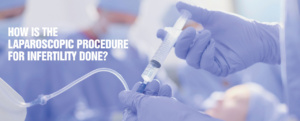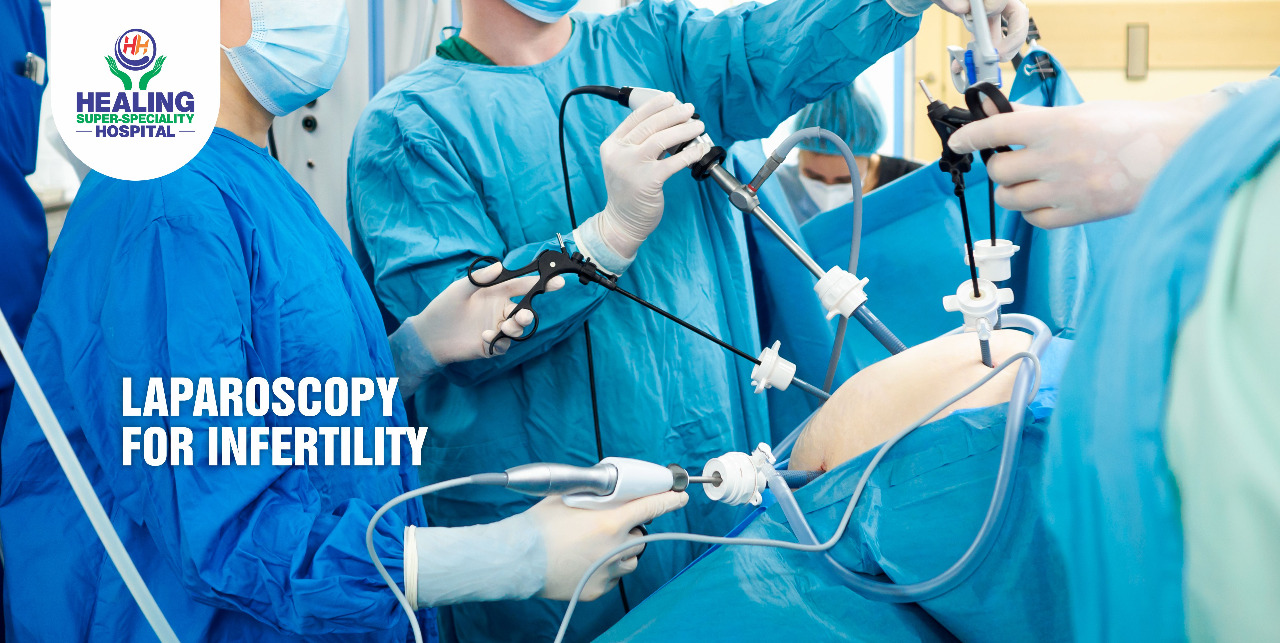Laparoscopic Surgery is used as a significant part of fertility testing to look at the structures of reproductive organs which includes, the uterus, fallopian tubes and ovaries. It is a helpful tool when a woman experiences unexplained infertility. This means all her diagnostic tests are normal but she is still not able to conceive. So, Laparoscopy can identify conditions that are otherwise undetectable in other lab tests.
Laparoscopy can assist your gynecologist to detect various conditions like:
- Endometriosis
- Pelvic Inflammatory Disease
- Uterine fibroids
- Adenomyoma
- Scar tissue build-up
- Blocked fallopian tubes
- Any other structural abnormalities in the reproductive system
How to prepare for Laparoscopy for Infertility?
- Your gynecologist will advise you not to eat anything 6-8 hours before the procedure.
- Inform your doctor about all the medications you are taking as some alterations might be required before the procedure.
- Last but not the least, inform the anesthetist about allergy to any dye so that requisite precautions can be taken.

How is the Laparoscopic Procedure for infertility done?
- General anesthesia is administered to the patient so that he/she does not feel any discomfort during the procedure.
- In the next step, a needle is inserted into the abdomen. Gas is injected so that all the reproductive organs and structures are clearly visible.
- The needle is then removed and a laparoscope with camera attached to it in inserted through a small incision.
- A second incision is made to insert a small tool known as a probe.
- During the procedure, your gynecologist can inject a dye through the fallopian tubes to see if they are blocked or open. In case they are blocked, the specialist surgeon can make an attempt to reopen them.
- Scar tissues and adhesions along with other abnormalities can also be corrected while the laparoscope is inserted. For this purpose, a third incision might be made to insert additional instruments.
- Lastly, all the tools are taken out and the surgeon stitches up the incisions.
What to expect after Laparoscopic Surgery for Infertility?
- The recovery time after a Laparoscopic surgery will depend on whether it has been done as a diagnostic procedure or an operative procedure.
- Minor pain and discomfort in lower abdomen can be felt.
- Pain in the shoulders or abdomen is felt as injected gas starts to disperse.
- Low-impact walking is a good way to release all the gas and discomfort. Your gynecologist will guide you on this.
- Rare complications include: heavy vaginal bleeding, severe pain in the lower abdomen, infection or discharge in the incisions, high fever etc. Get in touch with your gynecologist immediately if you experience any of these symptoms.
Benefits of Laparoscopic Surgery for Infertility:
- Less invasive
- Lower chances of infection
- Small incisions
- Minor reproductive issues can be resolved during the surgery
- Recovery period is less and easier
FOR MORE INFORMATION AND APPOINTMENT CALL:
+0172-5088883, +91 9464343434

























